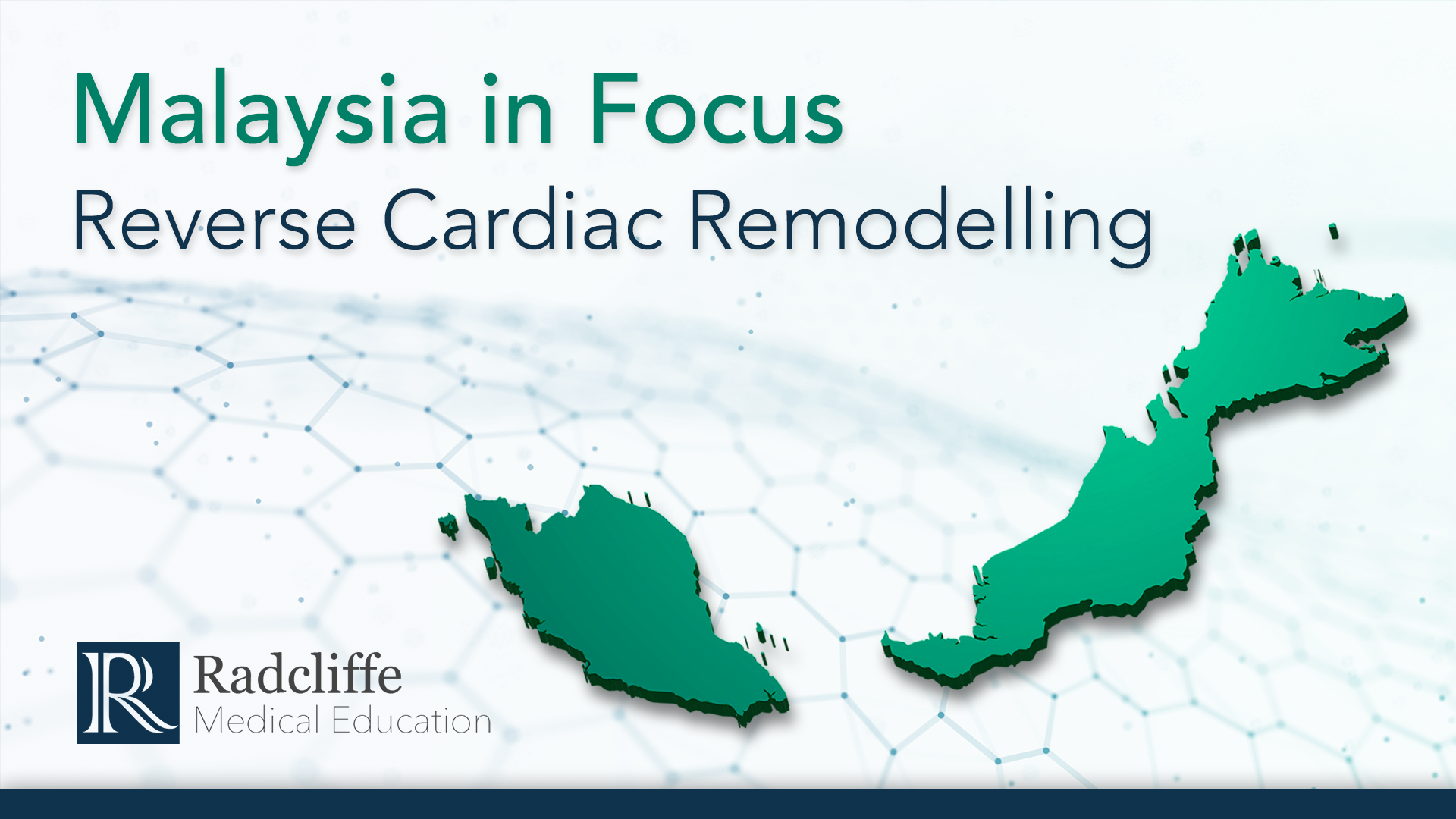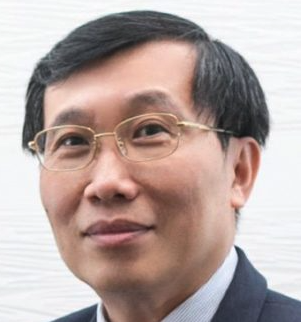Malaysia in Focus: Reverse Cardiac Remodelling
Published: 11 March 2021
-
Views:
 2884
2884
-
Likes:
 7
7
-
Views:
 2884
2884
-
Likes:
 7
7
-
 15m 57sPart 6 Overview of the Evidence
15m 57sPart 6 Overview of the Evidence
-
 13m 33sPart 1 Recognising and Treating Cardiac Remodelling in Heart Failure James L Januzzi, David Chew
13m 33sPart 1 Recognising and Treating Cardiac Remodelling in Heart Failure James L Januzzi, David Chew
Overview
This reverse cardiac remodelling IME programme brings together a leading faculty of internationally-recognised experts, combining presentations and peer-to-peer discussions to provide comprehensive overview of the latest data and opinion around cardiac remodelling.
Beyond the global focus, this programme also seeks – through insight from Dato' Dr David Chew – to frame and contextualise the topics discussed with specific focus on Malaysia, to help support the education of local physicians on pertinent topics including guideline adherence, emerging data, and best practice.
A CPD-accredited version of this programme is available on Radcliffe Education. Click here for further details.

Learning Objectives
- Define cardiac remodelling, with particular focus on the influence of cardiovascular damage, pathogenic risk factors and the structural and functional changes in the left ventricle.
- List the main clinical implications of cardiac remodelling.
- Summarise the relationship between circulating biomarkers, such as NT-proBNP, troponin and sST2, with the extent left ventricular remodelling in subjects with HF.
- Interpret the most recent clinical data from pharmacological and device-based studies in HFrEF and HfpEF.
- Recall the evidence for reverse cardiac remodelling brought about through ARNi therapy, including (but not limited to) PROVE-HF and EVALUATE-HF.
- Review real-world insight into the impact that ARNi therapy has on cardiac reverse remodelling.
Audience
- Practicing cardiologists
- Heart failure specialists
- Health care professionals involved in the diagnosis and management of patients with heart failure
More from this programme
Part 1
Recognising and Treating Cardiac Remodelling in Heart Failure
Part 2
The Clinical Implications of Cardiac Remodelling in Heart Failure
Part 3
Relationships of Cardiac Biomarkers
| 1 session | |
| Relationships of Cardiac Biomarkers | Watch now |
Part 4
Prevalence of HFpEF on the Rise – Treat HFpEF as a Whole, Not Just the Comorbidities
Part 5
ARNI: PARAMOUNT, PARAGON-HF, PARALLAX and Putative Placebo Analysis
Part 6
Overview of the Evidence
| 1 session | |
| Overview of the Evidence | Watch now |
Part 7
Angiotensin Receptor Neprilysin Inhibitors – Renal Safety and Efficacy
Faculty Biographies

Akshay S Desai
Prof Akshay Desai is a cardiovascular medicine specialist and the director of the Cardiomyopathy and Heart Failure Program at Brigham and Women’s Hospital. Dr Desai’s research focuses on improving care and outcomes for HF patients, as well as strategies to reduce heart failure readmissions.
Prof Desai received his medical degree from HMS. He completed an internal medicine residency as well as fellowships in cardiovascular medicine, vascular medicine and advanced heart disease at BWH. He is board certified in and cardiovascular disease, as well as advanced heart failure and transplant cardiology.
His clinical interests include advanced heart failure, cardiomyopathies (myocarditis, amyloidosis, sarcoidosis), congenital heart disease and cardiac transplantation. His research has received support from the American College of Cardiology and the National Heart, Lung and Blood Institute.

David Chew
Consultant Cardiologist, Cardiac Vascular Sentral Kuala Lumpur, Malaysia.
Dato' Dr David Chew Soon Ping is a Consultant Cardiologist at Cardiac Vascular Sentral Kuala Lumpur (CVSKL) in Malaysia.
He is a Fellow of The Royal College of Physicians (FRCP), London, and a Bachelor of Medicine, and Bachelor of Surgery (MBBS), University of Malaya. Dr Chew is published widely in leading international peer-reviewed journals on the subject of heart failure, and is a member of several societies and professional bodies, including the National Heart Association of Malaysia (NHAM).





